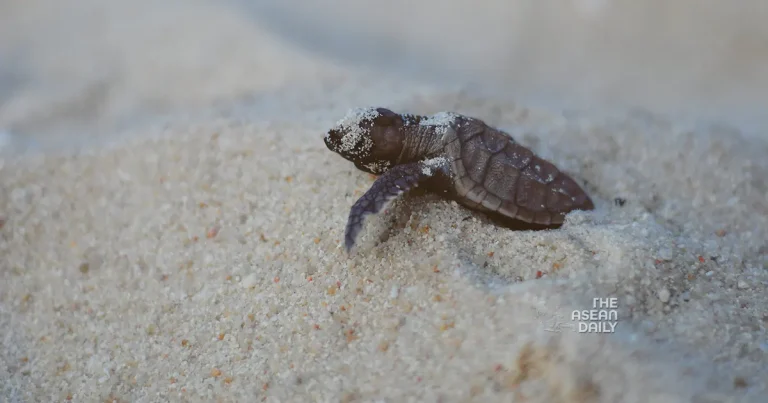7-6-2024 (KUALA LUMPUR) A dedicated group of volunteers is taking action to protect a vulnerable population – sea turtle hatchlings – on the secluded shores of Malaysia’s Redang Island. Amidst growing concerns about the impacts of climate change and the prolonged hot and dry spells caused by the El Niño weather phenomenon, researchers have sounded the alarm over a potential imbalance in the sex ratios of these remarkable creatures.
At the heart of this conservation effort lies the Chagar Hutang Turtle Sanctuary, where volunteers have been carefully retrieving newly laid sea turtle eggs from the sand and relocating them to shadier, cooler locations. The driving force behind this crucial intervention is the scientific understanding that the temperature during the incubation period determines the sex of the hatchlings.
“Sea turtle conservationists were concerned that uncontrolled global warming in the future, in the next 15, 20, 30 years, will be detrimental because it will feminise sea turtle hatchling populations,” explained Nicholas Tolen, a researcher at the University of Malaysia Terengganu, highlighting the urgency of the situation.
Researchers at the sanctuary are already observing a concerning trend – fewer male hatchlings emerging due to the warmer conditions exacerbated by climate change. In response, they have implemented innovative strategies to mitigate the impact, including moving nests to shadier spots and carefully irrigating them with water, proven methods to help lower incubation temperatures.
While the success of the sanctuary’s program is still being measured, the researchers emphasize the importance of such interventions over artificial incubators, which can disrupt the hatchlings’ understanding of the earth’s magnetic field, potentially affecting their orientation and ability to nest in the future.




